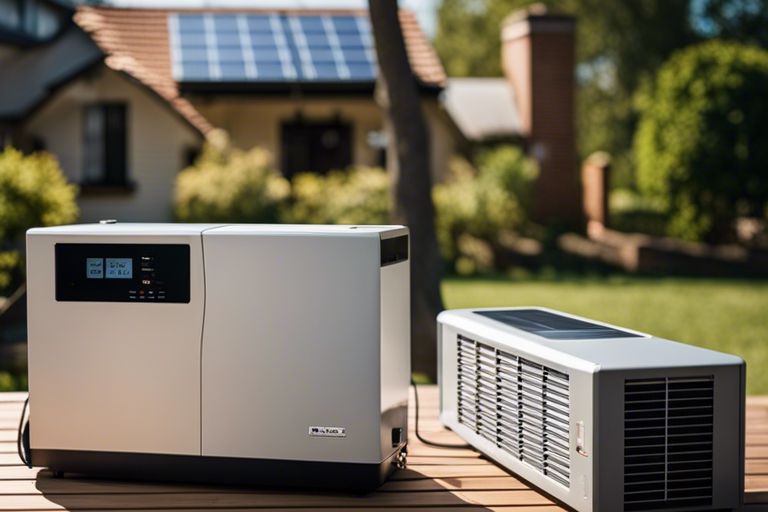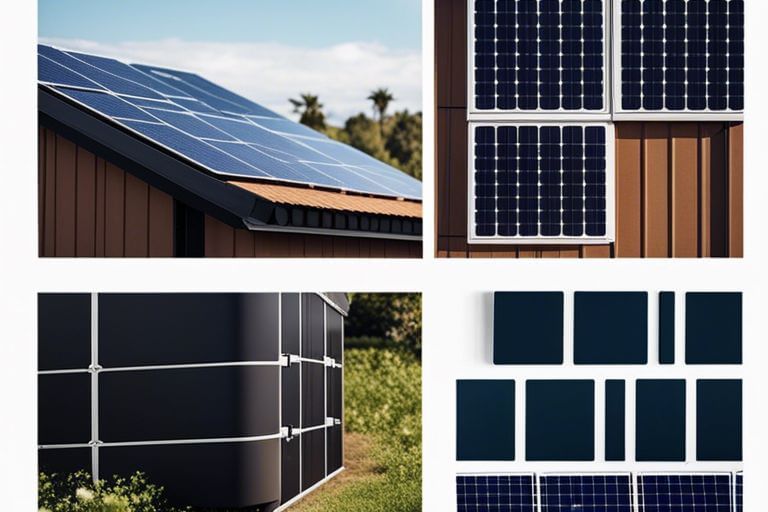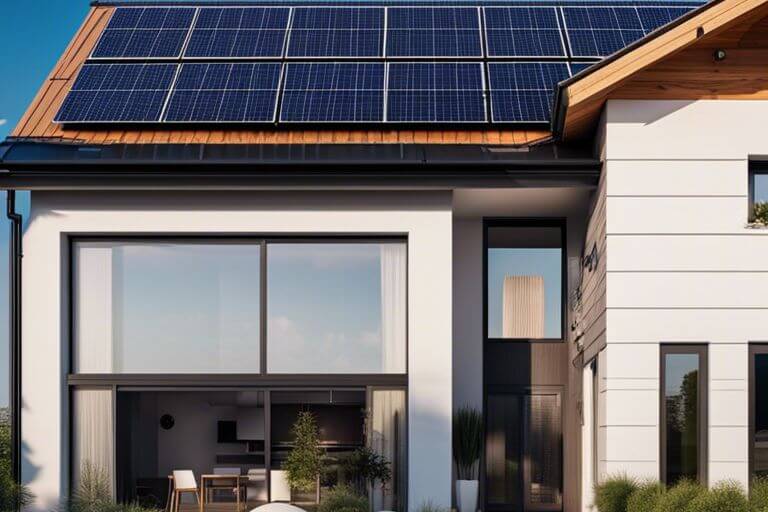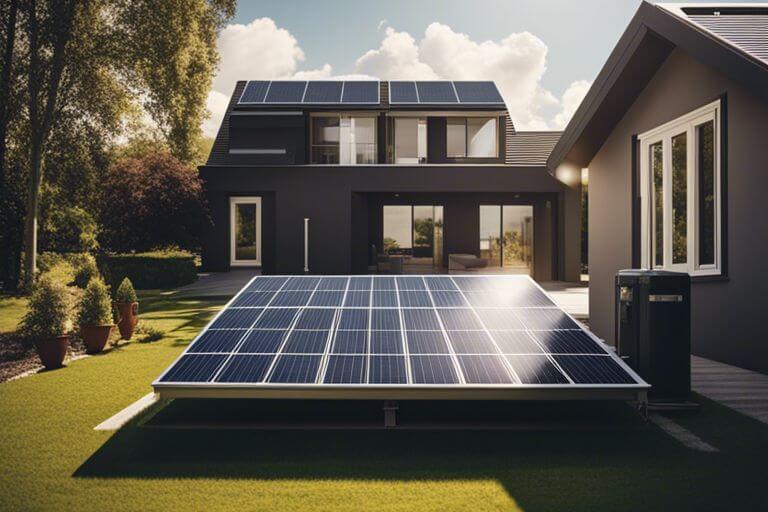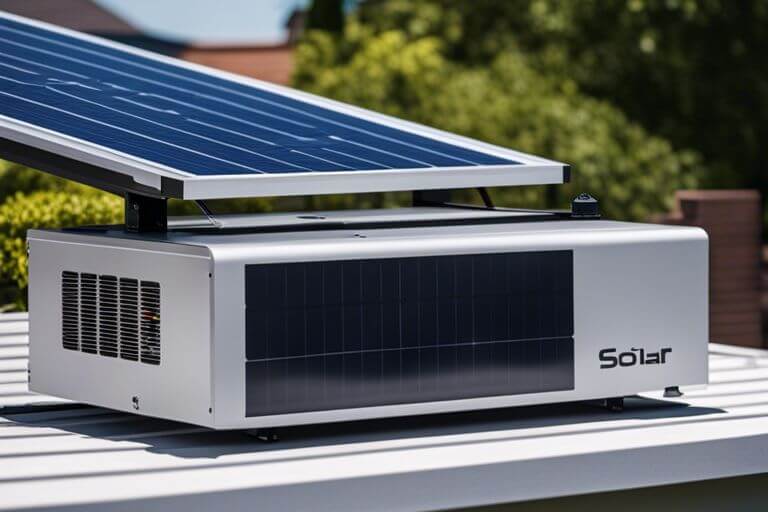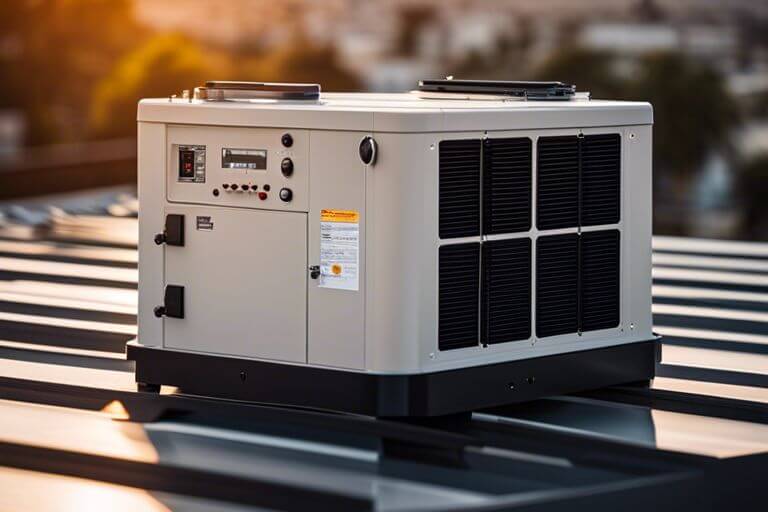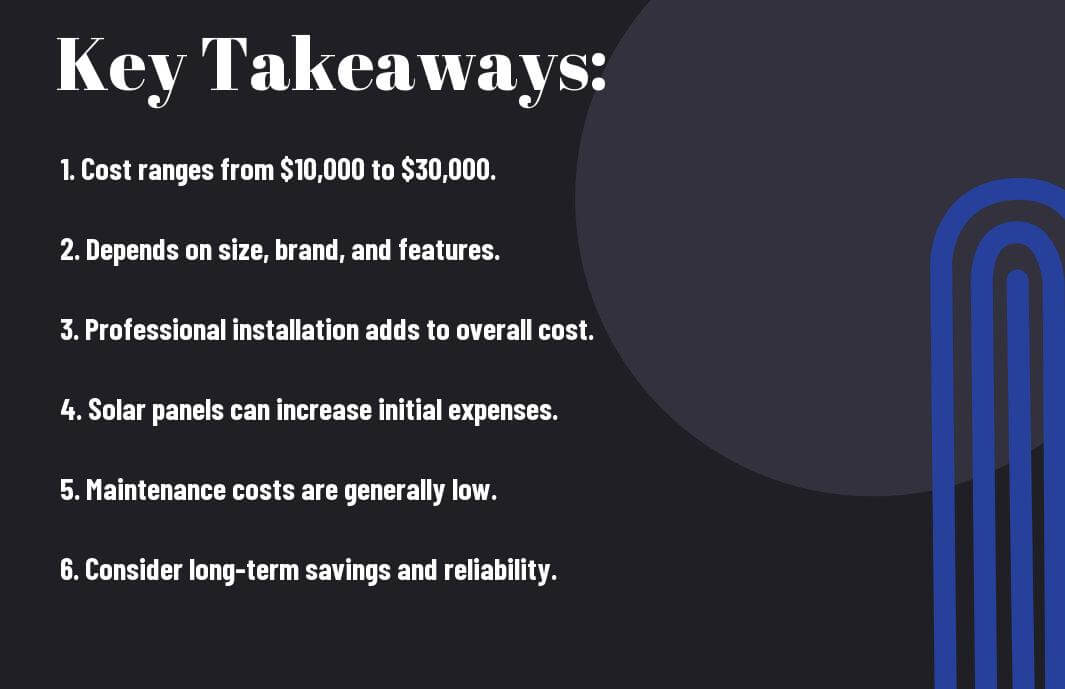Most people who consider switching to solar energy wonder, can a solar generator truly power a whole house? In this article, we will explore the capabilities of solar generators and discuss the factors you need to consider when deciding if a solar generator can meet the energy needs of your entire household. By the end, you will have a clearer understanding of how solar generators work and whether they are a viable option for powering your home.
Key Takeaways:
- Solar generators are capable of powering a whole house depending on the system’s size and the energy needs of the house.
- Calculating energy usage is crucial to determine if a solar generator can power a whole house as it depends on the appliances and devices being used.
- Battery storage capacity allows a solar generator to store excess energy generated during the day for use during the night or when sunlight is not available.
- Using energy-efficient devices and practicing energy conservation can help maximize the potential of a solar generator in powering a whole house.
- Consulting with a professional in solar energy systems can provide guidance on the right solar generator size and setup for efficiently powering a whole house.
What is a Solar Generator?
Definition and Explanation
To start, let’s clarify what a solar generator actually is. A solar generator is a portable power station that captures energy from the sun using solar panels and stores it in a battery for later use. Think of it as a mini power plant that you can set up and use wherever you need electricity.
Unlike a traditional gas-powered generator that requires fuel to run, a solar generator harnesses clean and renewable energy from the sun. This means you can power your devices and appliances without producing harmful emissions or contributing to air pollution.
How it Works
Explanation: Solar generators work by collecting sunlight through solar panels, which are usually attached to the generator or placed nearby. The panels convert the sunlight into electricity, which is then stored in a battery for when you need to power your devices. You can charge the generator by leaving it out in the sun or by connecting it to a solar panel array for faster charging.
Definition: The stored energy can be used to run a variety of devices, from lights and phones to small appliances like a mini fridge or a laptop. Some solar generators also come with outlets for easy plug-and-play use, making them convenient and user-friendly for powering your electronics on the go.
Powering a Whole House: Is it Possible?
While solar generators are a great renewable energy solution, powering an entire house solely on a solar generator can be a challenging task. It’s crucial to assess your energy needs and calculate the requirements before determining if a solar generator can effectively power your entire house.
Assessing Energy Needs
With various appliances and devices consuming energy in your house, you need to evaluate your energy needs accurately. Consider the imperative appliances like refrigerators, lights, heating and cooling systems, and electronics that you need to power regularly. Additionally, think about any high-energy consumption devices such as a hot tub or an electric car charger to ensure your solar generator can meet your demands.
Calculating Energy Requirements
Whole house energy needs are typically measured in kilowatt-hours (kWh) per day. To calculate your energy requirements, you need to determine the wattage of each appliance you want to power, estimate the number of hours you use them daily, and then add up the total watt-hours to get a daily consumption figure. This information will help you size your solar generator appropriately to meet your energy needs.
It’s imperative to understand that a solar generator needs to be properly sized to cover your peak energy consumption periods effectively. Ensuring you have enough battery storage and solar panel capacity is crucial to power your whole house efficiently without relying on the grid during the night or on cloudy days.
Solar Generator Capacity
Measuring Power Output
Keep in mind that the capacity of a solar generator is typically measured in watts (W) or kilowatts (kW). This measurement indicates the maximum amount of power that the generator can produce at a given moment. When considering if a solar generator can power your whole house, you need to calculate the total wattage of all the appliances and devices you want to run simultaneously. This will help you determine if the generator has the capacity to handle your household’s energy needs.
Factors Affecting Performance
On the other hand, several factors can affect the actual performance of a solar generator. These factors include the amount of sunlight the panels receive, the efficiency of the inverter converting solar power to usable electricity, and the capacity of the battery to store excess energy for use when the sun is not shining. Recognizing these factors can help you assess the effectiveness of a solar generator in meeting your household’s energy requirements.
- The angle and orientation of the solar panels in relation to the sun can impact the amount of sunlight captured and, consequently, the power output of the generator.
- The quality and size of the battery will determine how much energy can be stored for use during times of low sunlight or at night.
Any additional factors like shading from trees or buildings, the geographical location of your house, and seasonal variations in sunlight can also influence the performance of a solar generator. A thorough understanding of these factors will help you make an informed decision about whether a solar generator can effectively power your whole house.
- Recognizing these factors will allow you to optimize the performance of your solar generator and ensure a reliable source of clean energy for your household.
Whole House Energy Consumption
Your household’s energy consumption plays a crucial role in determining whether a solar generator can power your entire house. To understand how much power your home needs, you can refer to resources like Can a portable solar generator power a house? on Quora to gauge the requirements.
Average Energy Usage Patterns
With the increasing prevalence of energy-efficient appliances and practices, the average American household consumes around 877 kWh per month. This encompasses various activities such as lighting, heating, cooling, electronics usage, and more. Understanding your daily energy usage patterns is imperative for determining if a solar generator can sustain your household’s electricity demands.
Peak Energy Demands
Energy
peak demands refer to the times when your home uses the most electricity, such as when appliances like air conditioners, heaters, or ovens are running simultaneously. It is crucial to consider these peak energy moments when evaluating whether a solar generator can effectively power your entire house.
It is important to assess your household’s peak energy demands to ensure that a solar generator can handle the surge in power requirements during these high-consumption periods. By understanding when and how much energy your home requires during peak times, you can make an informed decision on whether a solar generator is a suitable choice for powering your entire house.
Can a Solar Generator Meet Energy Demands?
All solar generators have a specific capacity for generating and storing electricity. It’s crucial to match this capacity to your energy needs to determine if a solar generator can power your whole house.
Matching Capacity to Needs
Solar generators come in various sizes, from portable units to larger systems that can power multiple appliances. To determine if a solar generator can meet your energy demands, you need to calculate your daily electricity consumption. Consider the wattage of the appliances you intend to power and how many hours you plan to use them each day. This information will help you choose a solar generator with the right capacity to handle your household’s energy needs.
Energy Storage and Backup Options
To ensure a constant power supply from your solar generator, you need to consider energy storage and backup options. Batteries are a common choice for storing excess energy generated during the day for use at night or on cloudy days. Additionally, having a backup generator, especially for prolonged periods of low sunlight, can provide peace of mind and uninterrupted power supply for your whole house.
Options such as grid-tied systems or hybrid solar setups that integrate solar panels with traditional electricity sources can also help meet your household’s energy needs more effectively. These options provide flexibility and reliability in powering your home with a solar generator.
Real-World Examples and Applications
Successful Implementations
Despite the skepticism surrounding the ability of a solar generator to power an entire house, there have been successful implementations that showcase its potential. Any homeowner can attest to the convenience and reliability of a solar generator in providing backup power during outages. This is particularly useful for important appliances and devices, ensuring that your daily routine is not disrupted even when the grid is down.
Challenges and Limitations
Real-world applications of solar generators for whole-house power face challenges and limitations. With limited storage capacity, solar generators may struggle to sustain high energy demands for extended periods, especially during cloudy days or in regions with limited sunlight. It’s important to assess your energy needs and consider alternative power sources for continuous and uninterrupted supply.
With proper planning and understanding of the capabilities of a solar generator, you can effectively harness its benefits to power important components of your house. However, it’s important to acknowledge the constraints and have realistic expectations to maximize its efficiency and performance.
To wrap up
After exploring the question of whether a solar generator can power a whole house, it is clear that the answer is dependent on the size of the solar generator and the energy needs of your home. While smaller solar generators can power necessary devices during power outages, larger solar generators combined with energy-efficient practices can potentially power an entire household. It’s important to do your research and consult with professionals to determine the best solar generator solution for your specific needs.
Recall, using a solar generator to power your whole house can be a sustainable and cost-effective solution in the long run. By harnessing the power of the sun, you can reduce your dependence on traditional sources of energy and lower your carbon footprint. With advancements in technology and increasing accessibility to solar power systems, now is a great time to consider whether a solar generator could be the right choice for your home.
Q: Can a solar generator power a whole house?
A: Yes, a properly sized and installed solar generator can power a whole house. The key factors to consider are the energy requirements of the house, the capacity of the solar generator, and the availability of sunlight in the area.
Q: What size solar generator do I need to power a whole house?
A: The size of the solar generator needed to power a whole house depends on the energy consumption of the house. A professional solar energy provider can help you determine the right size based on factors like the number of appliances, lighting, and other electrical devices in the house.
Q: Can a solar generator provide power during a blackout?
A: Yes, some solar generators come with battery storage capabilities, allowing them to provide power during a blackout or when there is no sunlight available. These battery systems store the excess energy generated during sunny days for use during periods of low sunlight or power outages.





